The Northman and Cycles of Violence
The nature of vengeance and violence is one of the more explored topics in the popular canon. With The Northman, the audience is presented an actively critical lens on the concepts of violence, revenge, self-destruction, and destiny.
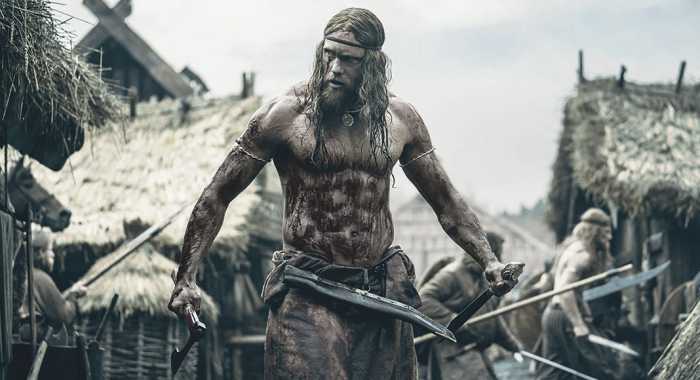
Spoiler warning and Content Warning: Contains spoilers for The Northman and discussion of sexual assault, death, slavery and extreme violence.
The Northman, directed by Robert Eggers, is an immensely engrossing film. At the same time it is an extremely disgusting look into a previous era of European civilization. The ceremonies, the viscera, the inhumanity, the savagery, the sheer depravity of the characters in the story all contribute to a world wholly distinct from what would or even could be considered proper society.
At least, that would be one way to look at it. Another, would be that “we” in the sense of the persons who exist in the world, create monsters. The story of Amleth is a thorough exploration of how revenge and justification of the revenge becomes a dogma with which monstrous actions can be justified.
Characterizing violence
One thing about the vile acts in the story is they’re on one hand fierce and visceral and yet, ignoble. The story lends itself to an interpretation that all of the blood in the world can’t really fix trauma, but for the person in the cycle, it becomes all that has value.
It is not a bold statement to say, The Northman, works to make you dislike characters.
Amleth, played by Oscar Novak and Alexander Skarsgård respectively, serves as the protagonist and begins as a loving and devoted son before he sees his father slain and vows revenge on his uncle. After escaping his uncle Fjonir’s regicide there’s time skip where the once young and presumably innocent Amleth is now a hardened Berserker, fueled by bloodlust and carnage.
Olga, played by Anya Taylor-Joy, is in turn a victim of Amleth’s violence as he is a raiding berserker who comes to her village and kidnaps her as chattel. As she is presented in the story she is mysterious claims to be a sorceress and does her best to support Amleth’s quest for vengeance.
The generation prior to Amleth is of note as his father King Aurvandill (Ethan Hawke), was a slaver in addition to being a king and his uncle Fjolnir (Claes Bang), was his best warrior, and eventual usurper.
Gudrun, Amleth’s mother stood out with regards to being a bit unscrutable in her portrayal while Amleth was a child and moreover in the conclusion of the story the audience is left with more questions than answers after she has died.
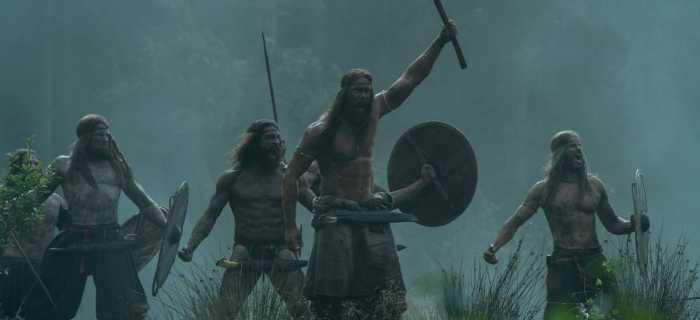
Violence as a Cultural Value
Violence in The Northman, isn’t portrayed with the typical action movie eye. Death is inglorious, the killers are either beasts or cowards. There’s no glory to be found for the people in the story.
The uncle who usurped Amleth’s father’s throne was quickly removed from power by a more powerful king. Giving credence to Amleth’s father’s proclaimation that his kingdom wouldn’t last.
For all the talk in the movie of wanting to die in Battle it isn’t until the last scene, Amleth’s fight with his uncle that we see a battle that is in theory glorious. Two warriors fighting at the Gates of Hel with lava flowing around them.
But it’s not. Amleth has been stabbed numerous times by his cousin and slashed by his mother.
His uncle is well passed his prime. Between the two of them, Amleth has abandoned his “love” and his children and his uncle has just buried his own, after Amleth killed them all.
Violence in the name of vengeance. The really peculiar part of The Northman is, despite being a tale of vengeance, it is under no pretense of there being a good and evil of any of it. Morality as viewed in The Northman isn’t a spectrum of black and white and really how could it be.
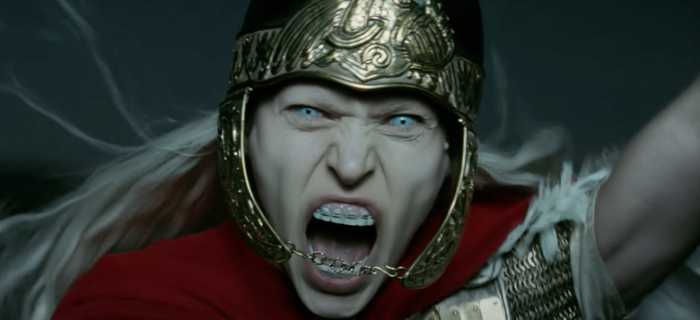
Women in The Northman
Women in The Northman are curious and cunning. Little can be said about the one scene wonder the Shieldmaiden calling for stronger stock or the Valkyrie riding Amleth to Valhalla.
But the two most important women in the story, Gudrun and Olga each have their own relationship with vengeance. While the audience is able to see Olga’s descent into slavery and her resistance, Gudrun a former slave and now queen plays an entirely different hand.
Olga as we’re introduced to her is cunning attempting to sneakily stab one of the Viking invaders in her village, she recognizes Amleth immediately but over time progresses into a “love” interest for him. He sacrifices himself for her safety. In the end however, when given the choice of escaping the violence of his familial trauma, being a father to his children, and being with the woman he saved, Amleth chooses to return to battle against his family.
This can be argued was a good choice as he has slain one of his cousins and thus the cycle would continue until one side was dead, but he was sailing to an entirely new area, with family knowing his uncle wasn’t a king but a farmer. The over estimation of the threat faced can be said to be a symptom of the cycle. Amleth needed for his cousin and uncle to be a mysterious threat to his progeny to justify his scouring of their family line.
Olga, however, doesn’t seek vengeance, she chooses life and is rewarded for the decision thematic with her own survival in addition to her progeny.
Gudrun, as alluded to before, is a much different interpretation of both the myth and in relation to Olga. In the myth, she is the captured Queen, wife to Fjolnir, she knows of her son’s return but doesn’t impede him. Gudrun in The Northman is on hand antagonistic, claiming she ordered the death of the king and Amleth, that the king was a coward she never loved, since she was taken as a slave, and that Fjolnir is her true love, and Gunnar her true son. There’s also the Oedipal offer she made to Amleth, where if she killed all of his kinsmen, he could take her as his Queen, while kissing him.
Gudrun, is many things, but easy to parse is not one of them. Was she honest with her love of Fjolnir? Was she honest with her love of Gunnar? Why did she thank Amleth for her death? There are many ways to interpret her life and death and her words and actions contradict at various points in the narrative.
Most thematically dissonant between the two, Olga is spared and her children are allowed to live while, seemingly every person in Gudrun’s life has died.
Amleth viewed with a Modern Morality
Compared with a world of cinema dominated by superhero movies such as the Avengers or even more darker tinged cinematic styling in the DCEU, the protagonists modern movies are almost universally moral. The logic and justifications behind their actions are treated as beyond reproach even as the “real world” implication(s) of their actions would lead to widespread condemnation (ex. Iron Man giving assess to a worldwide drone program to a highschool student).
Compared to the worlds of the present day blockbuster, The Northman is virtually alien. Amleth, as viewed in comparison with say, Tony Stark from Iron Man or Bruce Wayne from the DCEU, exists as an anomaly. Other characters in his situation would’ve been better served cutting their losses and moving on with their children’s mother.
But that isn’t the world he lived in. That is not how he was raised.
In a world of violence, where violent acts are glorified and the alternative, to grow old peacefully is shameful, who else could Amleth be?
The story of The Northman often references destiny, the destiny given to Amleth after his father is slain, the destiny he recieves from the He- Witch. Destiny is a oft-cited reason for the decisions that Amleth makes, but the question lingers, in this world who else could he have been.
A point of comparison
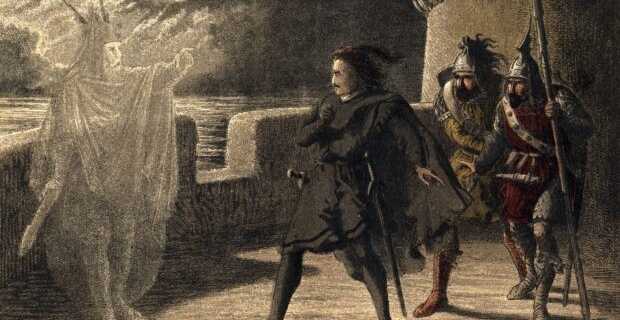
In the myth of Amleth, which is the inspiration for the movie and Shakespeare Hamlet, Amleth, is much more cunning, there isn’t a mention of slavery and of course, Amleth lives. It’s a very clear good and evil narrative where the good King is rewarded, justice prevails and evil is punished.
Compare this is with the story of Hamlet, we see a darker ending in so far as the protagonist, tragic as he is, is compelled by the spirit of his Father to kill the usurper, his uncle who rules as king. In this case, evil is punished but the protagonist inherits nothing for his death. Justice is served but arguably at too steep a cost as the body count of Hamlet is far higher than that of the myth it takes inspiration from.

©2019 Charlotte Graham
To draw the comparison even closer, Amleth in the Northman is not Hamlet or the Amleth of myth. The Northman isn’t the myth of Amleth, this story shows us a protagonist willfully brutalizing innocents, his comrades burning children like it’s another day at the office, turning people into property with nary a thought of the consequence of their lives.
As compared with his mythological progenitor and his famous adaptation incarnation, this Amleth could be argued is ignoble. His legacy as a prince plays little part in his revenge and is one of the first elements of his character to be discarded. Instead of fighting a wicked King as Myth Amleth and Hamlet did, this Amleth is fighting a past his prime slave holder who already lost his kingdom.
What is of note is this Amleth is written much further away from the culture the myth originated in both a temporal and a spatial sense. It could be argued this Amleth aside from the name is barely the same character with the way he goes about his quest.
To wit, Amleth swears vengeance on his wrongdoer, but no attention could be paid to those who he had done wrong until Gudrun and Gunnar. Gunnar being a child and Gudrun being his mother, both die at his hand and by his bland and while it could be argued they attacked him first he had already killed their son/brother. The “blood for blood” mentality infected the entire family and led to their ultimate destruction.
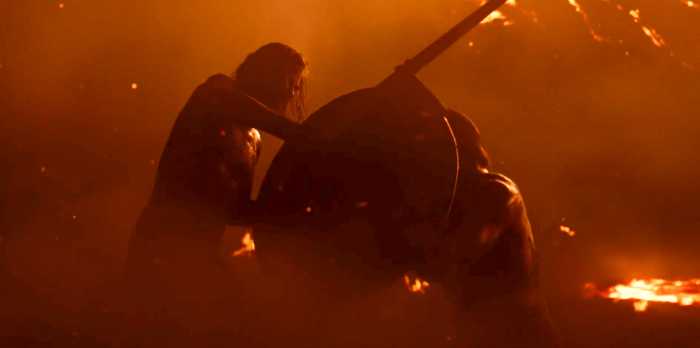
Amleth dies smiling, after having visions of his dynasty living on, and carried by a Valkyrie to Valhalla. A dying man’s fantasy as his live ebbs away and he reduced to cinders by the lava cascading around his and his uncle’s corpse.
Analyzing the Cycle
Who is to blame in the story? It’s a natural response to seeing such wanton destruction. Do we start with the King, who stole Amleth’s mother, Gudrun and allegedly forced her to bear Amleth which in turn lead her to want his and Amleth’s deaths? How much of her story can we trust, as she makes an offer to be Amleth’s queen and thanks him for her death? The uncle, Fjolnir who was a kinslayer and a poor king, but apparently a doting and loving husband and father? Do we blame the society? Who exactly instills the violence of the culture? How do you indict a society and what does that indictment actually, materially mean?
The story of Amleth is the roots of the Shakespearean classic, Hamlet. We’ve seen the story of usurper kings, their kingdoms in ruin, their stolen wives either docile and servile or awaiting salvation.
The narrative is much clearer in the old legend which makes the morality much easier to follow. But in The Northman we get a question, “Who does vengeance serve?”
If we take the perspective of Queen Gudrun, and we accept the story she told as fact, then what good was Amleth’s quest? His family was irreparably broken, and no amount of bloodletting would fix that. His societal obligations and prior trauma however force him into the cycle.
The culture as presented in The Northman is one is brutality. Children are murdered, women and men are chattel. Human sacrifice is not only permitted but wholly commonplace.
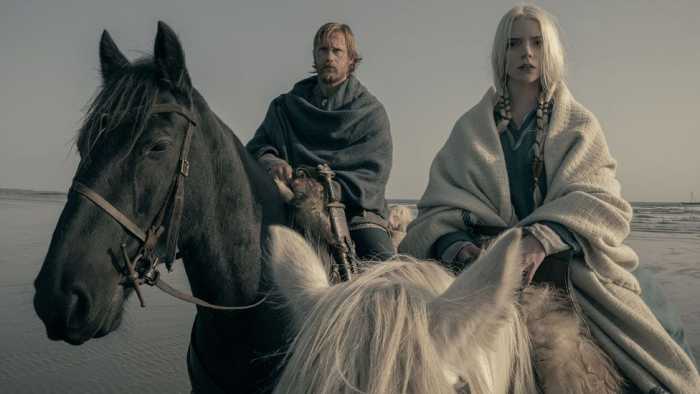
The Northman‘s core is (to Eggers credit) how really pointless the plot is. How no one involved is really made better, and how when you dedicate yourself to the destruction of an enemy no matter happened to them since they wronged you, what you must be ready to self-destruct on your own. The sad truth of Amleth’s life is even if he was completely and wholly morally justified in the actions he took, which he wasn’t, but even if he was, the ending he is granted is death. Oblivion.
He doesn’t get to see his children grow, he doesn’t get to see his “Love”, he doesn’t gain anything as he slaughters his kinsmen. And that more than anything is a powerful indictment, a true cautionary tale.
Works Cited
“Saxo’s Legend of Amleth in the Gesta Danorum.” British Library, https://www.bl.uk/collection-items/saxos-legend-of-amleth-in-the-gesta-danorum.
What do you think? Leave a comment.










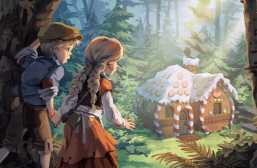
Reading how violence is so integral and significant to this culture reminds me of a required reading I did recently for a cultural anthropology class. It highlighted that the rise of mosh pits were strikingly similar to many people who live within the arctic circle, stating that the violence was welcomed to a point. The line was ultimately drawn at the point at which one aimed to cause physical harm or significant damage to other members of these rituals. Although this differs from the article, it still brought these things to my mind.
Thanks for reading . I understand the connection.
It is violent, OK, but is it the sadistic kind of violence I can’t stomach, or is there some justification for it which makes it more bearable?
Understanding the violence as a cultural norm?
Hamlet is very violent and they share much of the plot in common.
I am the other way round. Tarantino limb chopping I am fine with cos there is no real justification for it. Violence in any kind of realistic setting, however, is owhere near as much fun.
It is a intersting thing. Realistic (or at least somewhat believable) violence that are not done for the sadistic pleasure of the audience or film maker I can take, over the top can be fun as a silly entertainment, in setting sadism that are realistic can work in the right story…but when it is no longer silly and over the top, and made with a clear sadistic pleasure in mind I won´t watch it. As I have grown older I more and more get the feeling of being dirty (for want of a better word) by those scenes and movies.
The VVitch was amazing and The Lighthouse was pretty good too, but this looks like it ticks a whole load of the boxes for stuff I like- bloody revenge, madness, history, psychedelia and folk tales.
Wouldst thou like to live deliciously?
I personally appreciate when any period piece isn’t afraid to show the ugly side of the time period it portrays. Showing us how visceral the violence was adds to the believability of the movie in my opinion and I much prefer it to being shown a sanitized or romanticized depiction of the past.
Fair point.
True, but a film is not a documentary. Every frame is an artistic choice by the director to get his point across. In this case, it felt like there was no message, so it was just violence for violence’s sake. It could have been justified if, say, the gore was used to contrast with Amleth’s emotional vulnerability. Like, if he had a realization after all those years of mass murdering that revenge does not bring inner piece or something like that.
The story/film was told from the point of view of the boy, who saw his father murdered by his jealous uncle. A traumatic experience, after being taught by his father, whom he adored, that his place, his duty, was to avenge his father were it to come to that. It’s like in a western or samurai film where the hero is tasked with seeking revenge for his master/teacher/father figure. He believed it so much, and connected with it beyond reason. The director was guiding us through his journey and our penchant for violence, our belief systems regarding religion and the like. Well, that’s what I got from it. I believe the director asked us to draw our own conclusions, based on his interpretation – of Viking nomadic history. The Northman was Gladiator on steroids, told in a type of Shakespearean format.
True
Historical accuracy aside, I do believe a visceral depiction of the dark ages will feel much more authentic than a sanitized version with minimal violence on screen. It was called the Dark Ages for a reason
I completely agree, I don’t think romanticizing the past is a good idea.
I was pleasantly surprised by the amount of violence gore; the movie leaves little to the imagination.
There’s definitely little discretion at times.
As uneven as The Northman can be, so much of it is so intense and compelling that I’m keen to see it again!
Uneven?
I hope we can get a full length director’s cut with more of the spooky mystical elements.
The mysticism was always so interesting. Eggers does a good job in blending realities.
Could have used more Bjork, but I’m of the opinion that everything could use more Bjork. Is it time for a Bjorkaissance? After Lars Von Trier robbed the world of more Bjork performances, I think it’s time for a Bjorkaissance.
Agreed. It’s Bjorking time.
I have felt that in the past with other movies, it often can feel like the violence is a cutaway to the “awesome” part and it lessens the impact or doesn’t take full advantage of the fact that images can have a impact greater than the dialogue (not my first language, so I do apologise for the mistakes).
Your English is fine and I don’t disagree. Violence is used as a treat to keep viewers interested in a lot of films.
I love the brutal honestly of Viking culture and religion. The dialog was poetry.
Honesty?
You can’t deny the craftmanship and effort that went into making this, including the cast, but I got confused at times due to accents and it did seem a bit long in the middle. I’m actually hoping Eggers eventually gets a director’s cut I can watch with subtitles.
I thought there was room to expand some of the plot.
It makes all other Viking depictions feel tame and inauthentic in comparison.
I suppose so.
i loved everything about this movie and personally it was my favorite Eggers film by a mile but then again growing up one of my favorite movies was Conan the Barbarian lol
I love The Witch and appreciate the craftsmanship of The Lighthouse. Going to watch this next.
I believe the main message is one of showcasing the consequences of hypocrisy, of telling yourself what the message is versus whether that message really invigorates your actions, so the level of brutality seems apt as a portrayal of resistance against the opportunities the film’s mythology gives Amleth to go down a different path, and the way of resistance is expressed in how Amleth interprets what the mythology wants from him, which inevitably leads down the path of carnage.
😊
This movie made me wonder what a movie made by Vikings for Vikings would be like.
I’m conflicted whether i will see this. Im interested in violence on screen. But i dont like gratitious violence.
I absolutely loved this movie, the sound design, the score, the long takes, the cinematography, the action, the acting, … The story might be simple but it was purposeful so that all the mysticism and the mythology could take such an interesting (if all too brief) role in the movie while remaining entertaining and (somewhat) appealing to the masses.
This is a TRUE cinematic masterpiece!
I liked when Amleth nailed the body parts to the house and one of the men suggested it might be the work of Christians because he heard they worship a corpse nailed to wood. I thought that was hilarious but nobody else in the theater seemed to laugh so maybe I was the only one to think it was funny.
I would have laughed with you.
Why this weird persistence with speaking English in foreign, almost ‘allo ‘allo accents. Either do it in the original or just let the actors use their own accents.
To be fair at least Björk has written and sung enough excellent meaningful self-written lyrics in ‘allo ‘allo English to have earned the right to speak English any way she wants to.
Alexander Skarsgard is Swedish, Bjork is Icelandic.
It sounds so perfect on paper I’m almost too scared to see it.
Eggers is the absolute man. Nothing quite like The Witch or The Lighthouse.
I really enjoyed this movie. I saw it in the movie theater and was struck by the visceral ways it depicted Viking culture and its deeply-embedded myths and beliefs. The film, despite its gruesome moments, was a wonder to behold.
Really enjoyed this movie and your deduction of how it displayed the cycle of violence and its purpose to all of the characters lives was so well done.
Every character displayed elements of revenge in different ways – both subtle and obvious, and the films climax of hearing Queen Gudrun’s perspective really made you think – what was the point of everything?
Top director. I put him in the next generation group which includes Damien Chazelle and Ari Aster. All promising young filmmakers, roughly the same age. They’ll carry the baton after Nolan,PTA,Denis Villeanueve and Tarantino.
100% agree. Robert Eggers and Ari Aster have kind of taken what Ben Wheatley was doing and put a rocket up it.
That sounds unfair to Ben Wheatley who I also have a huge amount of time for.
The problem I had with this movie is that it did not know what it wanted to be. Do you want to be a viking 300ish warrior movie, do you want to be a mystic spellibinding surreal movie, the tones were all over the place and none of them were done particularly well and it bothered me. Aside from that I did not like Alexander Skarsgard in this lead role, he had the look but his line delivery and accent did not quite land for me. I wanted so much to like this movie , I was anticipating it for quite a while but it just did not land for me.
Loved the lighthouse, so I’m really excited to check this out.
For me it’s great that the movie’s reality is not ‘translated’ into our current mindset, meaning: generally we seem to be more aware of what’s good and what’s evil, we are much more cynical and sceptic towards faith and beliefs, but 1000 years ago people’s mindset was definitely a lot different, and I’m glad the movie tries to portray the past without implementing current values or behaviours (or jokes). I really liked when Amleth got someone’s heart there’s no direct explanation that it’s a big thing for those people. We can figure it out ourselves based on what we see and how those people react. It was also quite stunning when they invaded the village and the action focused mainly on Amleth, with the most horrifying thing happening in the background (getting people into the house, that was burned moment later). There was no focus on any particular victim, because it didn’t matter for Amleth, who was used to the violence and probably couldn’t care less about them. It’s also horrible, that the things which happened 1000 years ago also happened in 20th century (and similar things happened recently in Ukraine). Great movie.
‘It is not a bold statement to say, The Northman, works to make you dislike characters.’
This is what struck me most about the film. (And why I regard it as a failure) – the received wisdom is your mc should suffer from conflicting motives, as this is what makes him/her interesting. The audience is constantly trying to guess which way the character will jump. Aristotle came up with the concept and Shakespeare ran with the ball. But it’s also what makes the character sympathetic, as the conflict is rooted in the character having two aspects (good vs evil).
Hamlet is a young man trying to control his violent impulses whereas Amleth is just a bloodthirsty thug on a mission of vengeance. So no nuance = a character and film that are dramatically inert.
I really love how this article interprets revenge as a plot device and a theme!
The basis of myths and folk tales is to serve as a pseudo-hystorical fable or fairy-tale – instilling morals and codes of conduct in ancient societies. In this way, the original myth of Amleth would have been used to educate on the righteousness of blood vengeance. To an ancient Norse civilisation, hearing the story of a man dedicating his entire being to revenge and being rewarded for it by becoming king is a confirmation that revenge is good; revenge is moral. When someone kills your father, you kill them back. When someone steals your sheep you take theirs, and if they have a problem with that you kill them too.
Eggers takes this ancient story and re-tailors it to a modern audience. The Northman stays true to its roots and remains a mythic story of revenge, however the story’s moral sensibilities have changed with the times. Amleth is no longer a figure to be idolised or treated as an example of appropriate behaviour. His desire for revenge is his own brutal undoing and the story now reads that following such an example is a path that only ends in failure. When someone cuts you off in traffic, you don’t grab a baseball bat and give in to road rage – that’s an outdated way of thinking, and by telling the story of a character like Amleth, this point is made evident.
Edit: accidentally commented without signing in, so here it is again 🙂